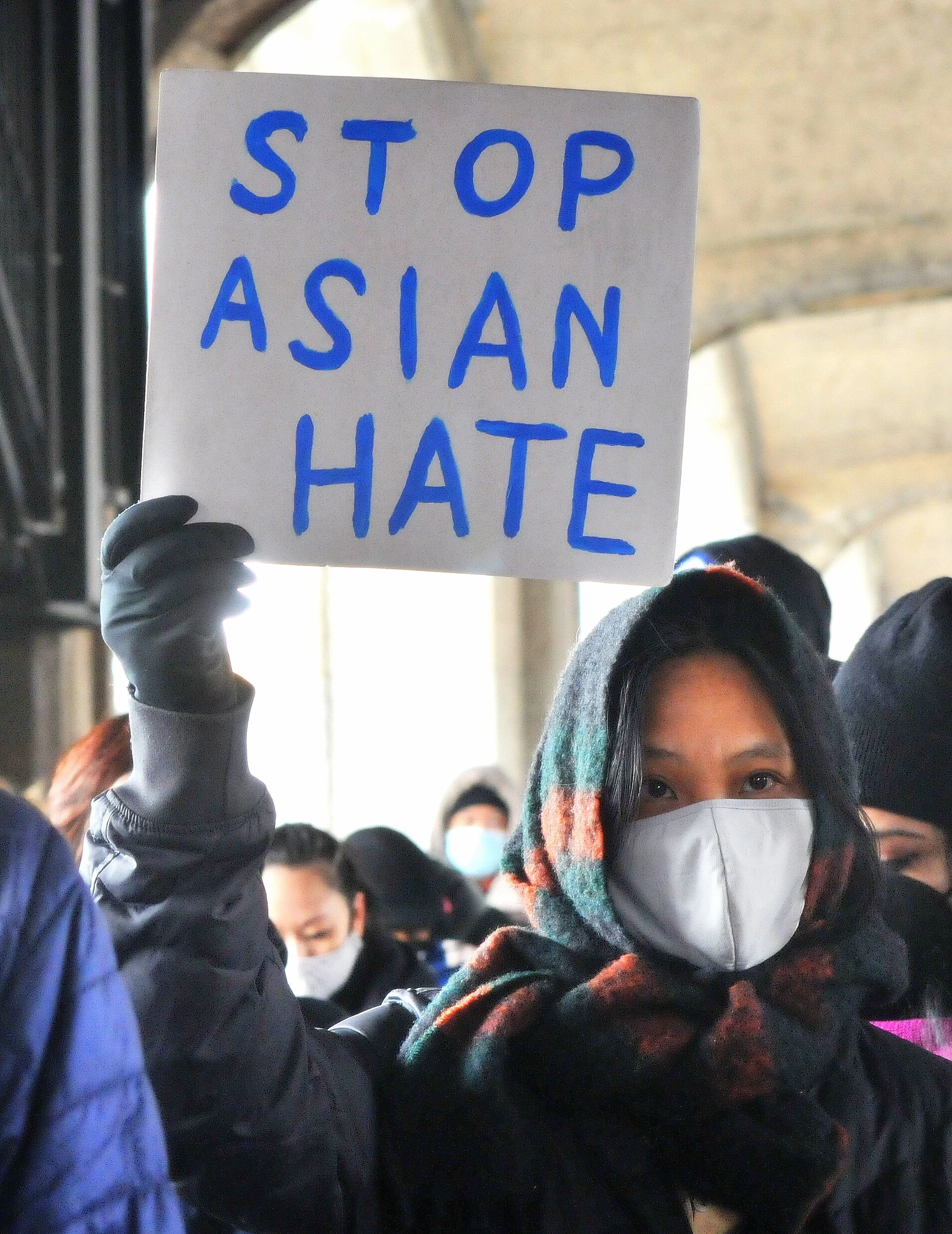Why is it so hard to charge a hate crime? A Queens prosecutor explains
/The head of the Queens DA’s Hate Crimes Bureau described the complicated process for charging a suspect with a hate crime during a forum last week. Photo by Walter Karling
By Rachel Vick
Amid a citywide spike in anti-Asian hate crimes, an assailant shoved a Chinese woman to the ground outside a Flushing coffee shop in February, sending her to the hospital.
The attack fueled outrage across New York City; and so did the decision not to charge the suspect with a hate crime.
The surge in attacks on Asian Americans across the city has not resulted in an equal number of hate crime charges, leaving many New Yorkers wondering, why not?
It’s complicated, says Queens prosecutor Michael Brovner, chief of the DA’s Hate Crimes Bureau. At a forum Wednesday, Brovner discussed the complex process for bringing the charges under the New York Hate Crimes Statute, which requires a motive clearly related to the victim’s identity.
An attacker using a slur before the assault, or having a documented history of extremist group affiliation makes it easier to charge someone for a hate crime, Brovner said. But usually, the decision comes down to circumstantial evidence and eyewitness accounts. Hateful language alone is not a crime, he said.
“We have to be conscious of what we’re doing and make sure we’re doing it properly,” he said.
Brovner said that prosecutors are circumspect when it comes to hate crime charges because they don’t want to jeopardize the rest of the case. They have to make sure there is enough evidence to prove the bias motivation in order to maintain the credibility of the witnesses and the prosecution’s case.
“We don’t want to charge hate crimes when it's not a hate crime because if a judge sees that we’re charging hate crimes too freely, without the evidence, when we have a real hate crime the judge might say ‘I don’t believe this is it's a hate crime,’” Brovner said.
The process is further complicated by casual discrimination, or the infrequent reporting of anti-Asian hate crimes, some experts say.
Americans are less accustomed to recognizing or reporting anti-Asian hate, said Lu-in Wang, a law professor at the University of Pittsburgh.
“There’s a recognizable prototype with anti-Black or anti-Semitic or anti-gay hate crime,” Wang told the New York Times. “They’re often more clear-cut.”
Bias offenses against Asian New Yorkers increased by 700 percent last year and accounted for 10 percent of all hate crimes investigated by the NYPD in 2020, according to department statistics.
Advocates say the number of unreported incidents dwarfs official reports.
New Yorkers have reported more than 500 anti-Asian incidents through a website run by the Asian American Federation, AAF Executive Director Jo-Ann Yoo said in February.
Prosecutors and lawmakers alike agree that proving the motive remains the greatest challenge.
Legislation introduced by Rep. Grace Meng could help change that.
Meng’s COVID-19 Hate Crimes Act would create a formal office within the Department of Justice tasked streamlining the review of potential hate crimes, and uniting federal and local law enforcement. The bill has the backing of President Joe Biden.
Meng said that the coordination between agencies is only the first step to addressing hate crimes. The real work comes at the community level, she said during an appearance on WNYC last month.
“Even if we were to say every single perpetrator should be charged with a hate crime, that doesn't necessarily solve the problem in the long term,” Meng said.




